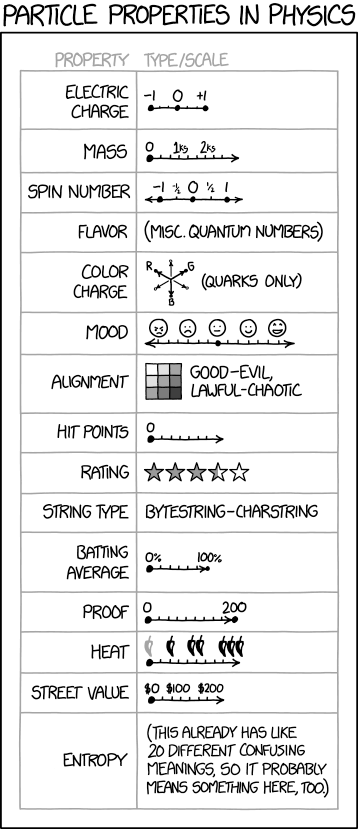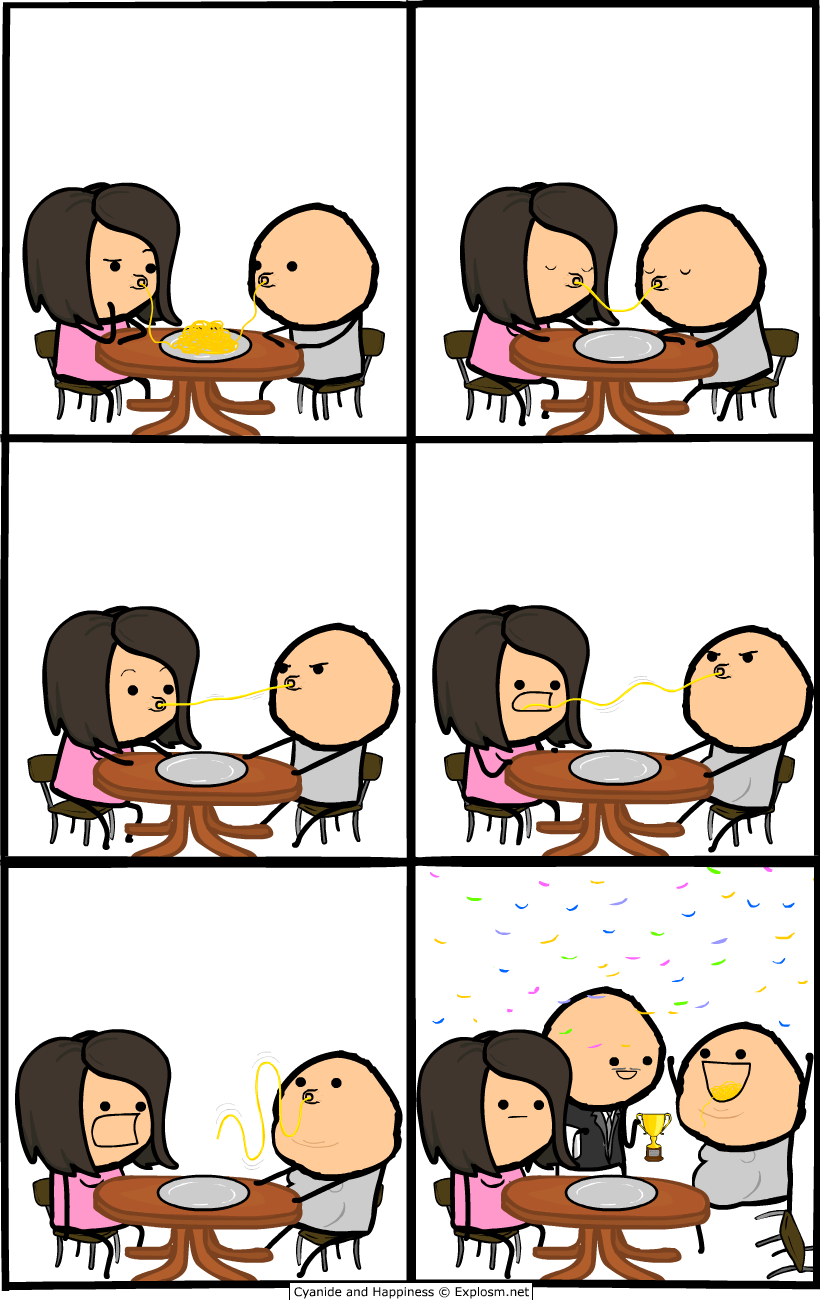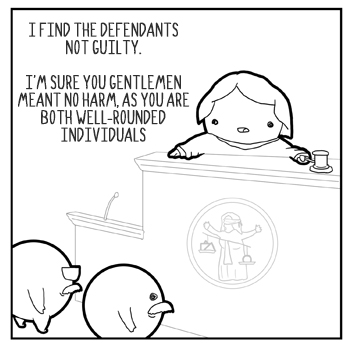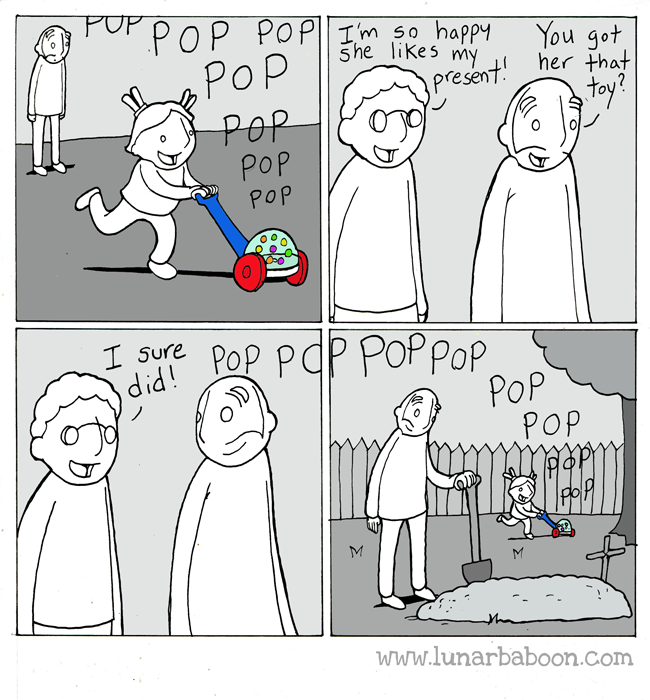Dan Jones
Shared posts
Solar-Powered Air Conditioned Bed

The Solar AC Bed wants to make it a Bananarama cool (cool!) cool summer without draining your wallet or sucking excess power from the grid. This modular cot frame surrounds your existing bed and absorbs solar energy throughout the day. At night, it funnels that energy into its air conditioner unit, enveloping you, and anyone else within the Solar AC confines, in sweet chilled air as you sleep.
Created by the Aries Group out of UAE, the Solar AC Bed addresses 2 issues: 1) Air conditioners' high energy consumption; and 2) The inefficiency of running "free-wandering" units or central systems that end up cooling areas of your home that don't need it. Especially at night. Especially when they're not sweating like a pig who know what's for dinner like you are.
The Solar AC Bed restricts and focuses cool air to the bed area, typically the only area that needs it when you're sleeping. Aries says it operates silently, and can achieve an 80% reduction in AC energy consumption, saving both at-home and commercial users 25% to 70% on energy bills.
Given its environmentally friendly nature, and that the frame also serves as a mosquito and critter barricade, Aries sees the Solar AC Bed as a useful addition to the eco-tourism industry as well. And the company notes that if solar energy is insufficient, the frame can plug into a standard electrical outlet too.
I didn't see any tech specifics on the bed's AC unit or solar panels, but Aries includes an inquiry form on its product page if you're interested in pursuing a Solar AC Bed for your own home. Or you could go a simpler route and get a BedJet.
"the" Americanization of English?
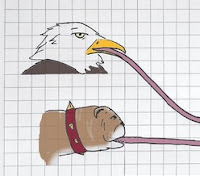 |
| from the Guardian |
It's perfectly clear that many originally-American words and spelling standards have spread elsewhere. It would be surprising if they hadn't, since the US has a large population that mostly (and mostly only) speaks English, as well as a very big and very international economy. For me, the problem comes
- (a) when "Americanization" becomes the whole story (because life and language are more complex than that),
- (b) when the story depends upon informational/logical fallacies, and
- (c) when that story is pitched as a story of winners and losers (because language doesn't have to be a competition, and because that winner-loser narrative is often heavily dependent on the simplifications of (a)).
 |
| Slide from Is the future American? (Murphy 2017) |
Anyhow, I was heartened to see that the Guardian article is by a data scientist, Mona Chalabi, and therefore it did something that popular news articles rarely do when talking about linguistic research—it sounded a note of caution concerning the data sources for the research: Google books data and Twitter.
Both are problematic resources in terms of making sure the data is what you think it is (here's one of many Language Log posts about Google Books metadata). This is not a criticism of the paper—we linguists use what we can to find out about language. But then we give caveats about the data, as we should.
But that note of caution is about where they've looked. There's also what you look for. Neither the Guardian article nor the paper give many caveats about that. The Google Books data was used to see what's happening in the US and UK over time, and the Twitter data to see what English is like across the world, and they searched for a specific list of "American" and "British" spellings and vocabulary.
To give just some examples that deserved more caution (from the paper's appendix of the British and American vocabulary that the authors searched for).
- AmE bell pepper is matched to "BrE" capsicum. But the usual term in British (as in AmE, really) is just pepper or a colo(u)r+pepper (green pepper, etc.) or sweet pepper. Capsicum is primarily Australian English.
| Capsicum the GloWBE corpus |
- AmE drug store and drug stores are matched to BrE chemist's. Why just the singular possessive? Why no plural? Looking at the same data set as they used (Google Books), it's clear that it's more common to get things from the chemist than from the chemist's. And often (maybe even usually) in contexts in which Americans would say drug store rather than pharmacist—e.g. The boy from the chemist is here to see you. But then, that leads us to another problem: does chemist's really match with drug store, when it also means pharmacist's and pharmacy?
| Click here to be taken to the interactive version |
And then there are the problems of polysemy (many-meaninged-ness) and variation, for example (but there are many examples):
- The polysemy problem: in comparing BrE draughts and AmE checkers, are we sure that they're all about games? Some of the draughts will be AmE drafts (for beers or breezes). Some of the checkers could be checking things. If the frequency of use of any of these meanings changes across time, then that can interfere with answering the question of what people call the game. Elastic band is given as the BrE for AmE rubber band, but in my AmE, elastic band can be a name for the covered kind you make ponytails with (and then in the US there are also regional terms for both the stationery kind and the hair kind).
- The variation problem: BrE plasterboard is given as equivalent of AmE wallboard, which I can't say I've ever used. It's drywall or Sheetrock to me in AmE. BrE spring onions is compared with AmE green onions (which, since that's the title of a song, might provide a fair amount of data "noise"), but AmE scallions is not included. BrE mobile phones is searched for, but not mobiles—but it looks to me (using GloWBE corpus) that about 1/3 of mentions of such phones have the shorter term. In the US, calling the phone by the shortened name cell looks to be less common than the equivalent shortened British form. So if you compare mobile phones to (AmE) cell phones, you might be missing a lot of BrE. (Then there's the problem of the not-uncommon spelling cellphones, which they didn't search for either.)
- The vocabulary–spelling problem: AmE license plate v BrE number plate. If BrE or another English borrows license plate, they may very well adapt the spelling to their standard, so why not look for licence plate? What does it mean if that's found? Is it an Americanism or not?
(If the authors read this and want to correct me on any points in the comments, please do. I may have misread something in my haste.)
I'd also like to sound a note of discomfort and caution regarding talking about AmE and BrE "around the world". This involves a leap of thinking that bothers me: that AmE and BrE are used outside the US and UK. To be fair, the authors mostly talk about BrE or AmE forms being used. But for us to claim national ownership of those forms is to take a particular nationalist-political stand on English, I think.
It's a common way to talk about English. People in, say, India or Korea might say "I/we speak British English" or "I/we speak American English". But what people generally mean is "I/we use the British (or American) spelling conventions."
If you're learning English as a foreign language (e.g. in Korea), you may well use learning materials that are from the US or the UK. (Your teacher may well be from somewhere else.) You may aim for a particular kind of accent (though a number of studies show that learners are often not very good at telling the difference between the accent they're aiming for and others). What you speak will be English, but it won't particularly be "American English" or "British English". You may aim for a certain pronunciation convention, you may get certain vocabulary. But your English has not developed in Britain or America. It's developing right now where you are. It's absolutely related to British and American English. But it is neither of those. (Glenn Hadikin's your linguist if you want to know about Korean English.)
In a place with longstanding English usage, like India, the language has been going in its own direction for some time. The fashions for UK or US spellings may change, and the language will take in new English words from the US and other places, but it also makes up its own, has its grammatical idiosyncrasies, etc. If you look at whether people in India use off-licence or liquor store (as this study did), then you're missing the fact that the Indian English liquor shop is more common than either the American or the British term. (And, interestingly, it looks like a mash-up between American liquor store and the British use of shop for retail places.) I don't know what the alcohol-selling laws in India are, but if they're not like Britain's then the British term off-licence would make no particular sense in India. Instead, Indian English has a nice descriptive phrase that works for India. But what a study like this will find is that there are a few more uses of liquor store in their Indian data than off-licence —who knows, maybe because they're talking to Americans on Twitter or because they're talking about American films in which people rob liquor stores. (Spare thought: are there UK films where people rob off-licences?) The study then completely misses the point that, for this particular word meaning, Indian English is Indianized, not Americanized.
The most interesting thing about the study (for me), but not one that gets a mention, is what happens to their data in the Internet age. After 1990, we see the gap narrowing. This does not come as a surprise to me—this is also the point at which Britain falls out of love with the -ize spelling and starts preferring the -ise one (having allowed them co-mingle for centuries). In the internet age, we also are seeing grammatical changes that set British and American on different paths (you're just going to have to wait some months for my book for those details).
 |
| From Gonçalves et al. 2017 |
This graph is based on Google Books data from the US and UK (or at least, that's what Google Books thinks). The yellow line is BrE vocabulary and the black line is BrE spelling (of the particular vocabulary and spellings they were looking for—which include no words with -ise/-ize). Those lines are fairly steady--though you can see that the two world wars did no favo(u)rs to British book publishing. You can also see dips in the American lines after WWII. The authors attribute this to European migration to the US after World War II. I'd also wonder about American contact with Britain during the war.
But after 1990, those British lines are going up—the spelling one quite sharply. In the paper I gave last week, I talked about (what I've decided to call) contra-Americanization—British English changing or losing old forms because they look like they might be American. There seems to be a backlash to (perceived and real) Americanization.
I've congratulated the Guardian author on the note of caution. I don't want to congratulate the headline writer, though. Nor the researchers' title for their paper.
The paper's title, setting the end of Empire against Americanization, implicitly feeds into that "it's a two-way competition" story.
The Guardian headline 'Do you want fries with that? Data shows Americanization of English is rising' includes an Americanism that wasn't part of the study. The implication that Americanization means de-Briticization (which falls out from the competition story) doesn't work for fries. British English now has fries, but it has very Britishly made it mean something different from what it means in America, since in Britain it contrasts with (rather than replaces) chips. But the bigger problem in the headline is that "is rising". Given what we've seen in the post-1990 graph line, is that true?
These kinds of things also raise the question: what is meant by Americanization? Apparently it means non-Americans having the words fries and cookies in their vocabulary. But if those words don't mean the same thing to them that they mean to Americans, what does Americanization mean here?
The moral of this story: talking about "the Americanization" of English makes a lot of assumptions—including that "Americanization" and "English" are each one thing. They ain't.
*I'm too tired to keep up the marking of the s/z contrast here, so I'm going with the z because it's Oxford spelling, good in Britain and America. Don't let any contra-Americanizer tell you otherwise!
Donald Trump Jr. Gives Up On Plans to Learn Russian Alphabet
MARY GRACE LAMBERT WASHINGTON – In an effort to totally-nonchalant-nothing-to-see-here communicate with anyone Russian, Donald Trump Jr. made an account on Duolingo from a probably secure server in a Starbucks cafe. Within the first hour, he made significant progress in vocabulary learning how to say phrases like, “The library is blue” and “My daddy can […]
The post Donald Trump Jr. Gives Up On Plans to Learn Russian Alphabet appeared first on The Valley Report.
COGZ Steampunk Board Game
Dan JonesToMolly, what say you, our resident board game experts?

The first thing I read about the COGZ board game is that it's Mensa-endorsed. So I'm out. As much as I like the game's steampunk era setting and mad scientist with a busted "chromatic cogtraption" premise, I can hardly remember the rules to Uno. And I know any game Mensa nods its cranium at will not go well for me. COGZ play requires memory, planning, and strategy. I'll leave this one to the MIT grads and the 8-year-olds.
And maybe you and your family on Sunday nights and rainy days.
COGZ players assume the role of Cogineer, each racing to repair the mad scientist's broken chromatic cogtraption before he returns and finds out what happened. Reconstructing the cogtraption entails trading, configuring, and adding Cog Tiles, which can come together in many, many different ways to complete the repairs.
COGZ playing time is around 30 minutes, and the game can accommodate 2 to 6 players. COGZ can also accommodate your wallet at 19% off retail price for a limited time.
After a "close call," a coding champion
Eighteen-year-old Cameroon resident Nji Collins had just put the finishing touches on his final submission for the Google Code-In competition when his entire town lost internet access. It stayed dark for two months.
“That was a really, really close call,” Nji, who prefers to be called Collins, tells the Keyword, adding that he traveled to a neighboring town every day to check his email and the status of the contest. “It was stressful.”
Google’s annual Code-In contest, an effort to introduce teenagers to the world of open source, invites high school students from around the world to compete. It’s part of our mission to encourage and inspire the next generation of computer scientists, and in turn, the contest allows these young people to play a role in building real technologies.
Over the course of the competition, participants complete open-source coding and design “tasks” administered by an array of tech companies like Wikimedia and OpenMRS. Tasks range from editing webpages to updating databases to making videos; one of Collins’ favorites, for example, was making the OpenMRS home page sensitive to keystrokes. This year, more than 1,300 entrants from 62 countries completed nearly 6,400 assignments.
While Google sponsors and runs the contest, the participating tech organizations, who work most closely with the students, choose the winners. Those who finish the most tasks are named finalists, and the companies each select two winners from that group. Those winners are then flown to San Francisco, CA for an action-packed week involving talks at the Googleplex in Mountain View, office tours, segway journeys through the city, and a sunset cruise on the SF Bay.

“It’s really fun to watch these kids come together and thrive,” says Stephanie Taylor, Code-In’s program manager. “Bringing together students from, say, Thailand and Poland because they have something in common: a shared love of computer science. Lifelong friendships are formed on these trips.”
Indeed, many Code-In winners say the community is their main motivator for joining the competition. “The people are what brought me here and keep me here,” says Sushain Cherivirala, a Carnegie Mellon computer science major and former Code-In winner who now serves as a program mentor. Mentors work with Code-In participants throughout the course of the competition to help them complete tasks and interface with the tech companies.

Code-In also acts as an accessible introduction to computer science and the open source world. Mira Yang, a 17-year-old from New Jersey, learned how to code for the first time this year. She says she never would have even considered studying computer science further before she dabbled in a few Code-In tasks. Now, she plans to major in it.

“Code-In changed my view on computer sciences,” she says. “I was able to learn that I can do this. There’s definitely a stigma for girls in CS. But I found out that people will support you, and there’s a huge network out there.”
That network extended to Cameroon, where Collins’ patience and persistence paid off as he waited out his town’s internet blackout. One afternoon, while checking his email a few towns away, he discovered he’d been named a Code-In winner. He had been a finalist the year prior, when he was the only student from his school to compete. This year, he’d convinced a handful of classmates to join in.
“It wasn’t fun doing it alone; I like competition,” Collins, who learned how to code by doing his older sister’s computer science homework assignments alongside her, says. “It pushes me to work harder.”
Learn more about the annual Code-In competition.The trouble with new friends...
While discussing comic book movies...
Google Play Movies & TV launches support for HDR
High Dynamic Range is all the rage these days when it comes to watching movies. Companies like Amazon and Netflix have supported it for quite some time, and now Google is now offering support, too.
Today Google announced that it now supports HDR playback in Google Play Movies & TV. It’s available to start in the United States and Canada, and Google says it’s available via the Chromecast Ultra as well. You’ll also need a TV that supports HDR to see any benefit.
HDR increases the image in a variety of ways, including deeper blacks, greater brightness, and overall better contrast. To start, Mad Max: Fury Road and Fantastic Beats and Where to Find Them are available through Google Play Movies & TV with HDR support. Google says it’s working with Sony and Warner Bros. to bring even more movies to the digital marketplace at some point in the future.
Do you own a Chromecast Ultra?
Net Neutrality Day of Action: Help preserve the open internet
Editor's note: Today is the Net Neutrality Day of Action, and we’re sending this email to Take Action, our community focused on issues that are important to the future of the internet. We wanted to share it more broadly so everyone can see how to get involved.
The net neutrality rules that protect the open internet are in danger of being dismantled.
Internet companies, innovative startups, and millions of internet users depend on these common-sense protections that prevent blocking or throttling of internet traffic, segmenting the internet into paid fast lanes and slow lanes, and other discriminatory practices. Thanks in part to net neutrality, the open internet has grown to become an unrivaled source of choice, competition, innovation, free expression, and opportunity. And it should stay that way.
Today’s open internet ensures that both new and established services, whether offered by an established internet company like Google, a broadband provider, or a small startup, have the same ability to reach users on an equal playing field.
It’s an important chapter in this debate, and we hope you’ll make your voice heard.
Tell everyone that you want to keep the Internet free and open.
Google and many others are joining together to call on the FCC to preserve the open internet, and we encourage you to act too!
Together, we can make our voices heard and we can make a difference.
To find out more, including how to share your views with the FCC, visit https://netneutrality.internetassociation.org/action/.
Depressed.
I wonder if there is a specific term for the sort of depression you feel after a long video game or watching the finale of a long television show. Maybe this is related to the anxiety I feel about getting older. Nothing can last forever, right? Except maybe "The Simpsons..."
Love,
Chris.
Facebook.com/PoorlyDrawnThoughts
Instagram.com/PoorlyDrawnThoughts
Twitter.com/PoorlyDrawnGuy
July 12th, 2017 - /r/MarchForNetNeutrality: Error, freedom not found
/r/MarchForNetNeutrality
8000 subscriber ![]()
marching...
THIS POST HAS BEEN BLOCKED BY YOUR INTERNET SERVICE PROVIDER
PLEASE UPGRADE YOUR PLAN TO ACCESS THIS FEATURE.
[link] [comments]
World's Largest Super Soaker

Your biggest concern about the World's Largest Super Soaker* shouldn't be that it will get you super soaked upon impact. Because the water jets maker Mark Rober has built this 7-foot H2Ogre to spew is so powerful it can shatter glass, halve an unpeeled banana, and slice straight through a watermelon (the watermelon gets suckered into certain death again! Background here.) Upon impact, your biggest concern should be that you end up on your ass, bruised and confused, and wetter from the pee in your pants than the water from the World's Largest Super Soaker.
Rober used to be a NASA engineer, so naturally when he started missing working on space rockets, he moved to the next best thing: water rockets. His World's Largest Super Soaker doesn't quite break the sound barrier when it fires, but I think the 272MPH stream it does release is impressive enough to call a "blast-off." And impressive enough that I would like to order one 7-foot Super Soaker, please.
Not surprisingly, Rober isn't planning to mass produce his giant Super Soakers, and I'm guessing the one he made is a once-off. For him.
You though. You can get your hands on the build list of parts he use, and the CAD files he put together to build the Super Soaker here.
Heh, heh, reading about the World's Largest Super Soaker reminds me of this video from a few years ago. 272MPH right in the kisser!
*Guinness-confirmed, says Rober.
BumpShox Front Car Bumper Guard

I wonder if the BumpShox bumper guard protects the cars you bump from damage. If so, I'm definitely getting one for mysel...my future wife, She-Ra: Princess of Power. She, uh, failed parallel parking in her driver's exam and 20 years later still hasn't mastered it. And last week someone tried to make her one-way-street parallel on the left side. I was like...I mean she was like, "Are you shitting me, the left side? What am I, an ambidexter?"
The BumpShox, now in XL for XLlent front bumper protection, installs like a standard license plate frame, but instead of providing free advertising for the dealership where you got your car, it provides a 2-1/4"-thick cushion over its 14" x 8-1/2" perimeter to absorb minor impacts and prevent damage. Made of V-Tech all-weather foam, the BumpShox also won't crack or rust over time like metal or plastic license plate covers.
Though obviously way bulkier than your alternatives, the BumpShox XL's steep angles form a pyramid shape intended to minimize its hulking presence on your car. The design also increases its flexibility and shock absorption. The screws holding the guard in place are recessed too, so if you bump another vehicle, the measures you've gone to to preserve your own car's appearance won't mess up theirs.
Escapism.
The Odorless Toilet Fan
Dan JonesThis might be a necessity.

The Odorless Toilet Fan claims to be "the #1 way to eliminate #2 odor." The unit installs inside your toilet tank to inhale all the foul-smelling air your bowel movements produce so you don't have to.
I'd like to set up a little competition between the Odorless Toilet Fan and Poo-Pourri to see which once cuts the crap better. Because while I haven't tried the Toilet Fan yet, I do have a bottle of before-you-go Royal Flush in my bathroom, and I can attest that no matter how much shit I deal it, its tag-team of eucalyptus and spearmint blocks it all.
At least when I remember - or, uh, have enough time - to spray it before I pop a squat.
With the Odorless Toilet Fan memory and time play no role. With a design similar to that of a turbine jet engine, it's always on the ready to pull in air from your toilet bowl and force it through an activated carbon filter to remove unpleasant odors before the trickle into the bathroom.
The fan contains a rechargeable NiMh battery that pairs with a sensor to turn the unit on / off automatically, plus give an alert when it's time to recharge and change the filter. The Odorless Toilet Fan package includes the fan, 1 x filter, the sensor, the battery, a battery charger, and a wall mount.
B.A.T. Coin Multi-Tool
Dan JonesLooks cool.

If it looks like a B.A.T. and cuts, opens, ignites, and carries like a B.A.T., it must be a Bring Anywhere Tool. In the case of the B.A.T. Coin multi-tool, one barely bigger than a quarter too.
The B.A.T. Coin corrals 10 tools into and around a nifty 1.2" disc with winged cutouts. Carry it in your wallet or pocket, or loop the B.A.T. through a keychain ring or necklace chain. At printing, the multi-tool was TSA-compliant for travel.
Developed by Covert Products Group, the B.A.T. Coin's pack of tools include:
- A semi-sharp captured edge for opening boxes
- A hole punch
- A friction saw
- A 3-prong Phillips head screwdriver
- A flat head screwdriver
- A wire stripper
- A bottle opener
- 2 x fire-rod scrapers (ferro rod not included)
- SOLAS reflective stickers for signaling
- A hole for use as a keychain tool and boot-lacing slots for covert carry
B.A.T. Coins are made of stainless steel and weigh 0.5 ounces. Pair one with a 50 Cent Coin Knife, or wrap a B.A.T. up all nice and pretty as a no-fail gift for any man.
Vycle Bicycle Elevator

On the Vycle you won't go Tour de France fast or Tour de France graceful (heh, heh, check it out) but seated atop this human-powered elevator, you will go all out Y-axis on a bicycle.
Elena Larriba and Jon Garcia the Vycle vertical transport system prototype for urban areas in need of: 1) more energy-efficient and sustainable ways to ascend floors (and scale wales, wannabe Spider-Men); and 2) a method for doing so that can accommodate people of different ages and abilities.
Vycle design is similar to a pulley system. The vertical structure is balanced with counterweights, so once you're seated on the Little Bicycle That Could, the only heavy lifting you need to conquer is your own body weight. Vycle also incorporates traditional bike gears, so riders can control the effort-to-speed ratio they want to use on ascents and descents.
Larriba and Garcia view Vycle as a viable workplace installation (gift for the office, boss?) for eco-friendly functionality, plus employee well-being. Obviously Vycle use stimulates the body and, like the HOVR seated walker, breaks up too-long periods of sitting unmoving at a desk. But the vertical pedaler's fun and funky design, like the Hamster Wheel Standing Desk, also stimulates the mind, taking you back to the playground, and encouraging a more interactive flow of movement in office communities.
Muchas danke to Laughing Squid.




